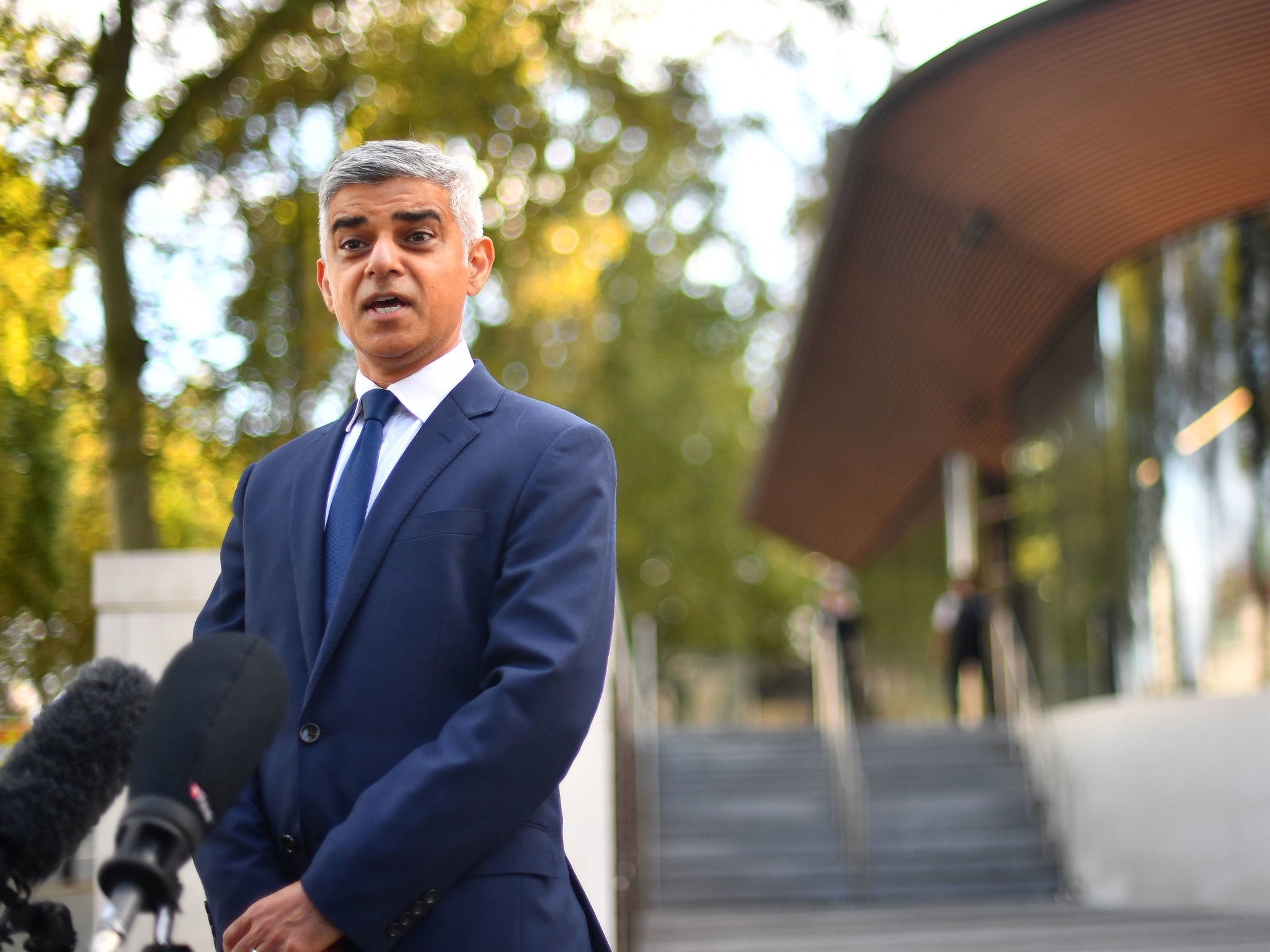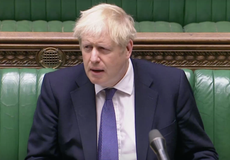London is the next part of the UK to be turned away from the Tories by their response to coronavirus
The public health crisis is pulling the country apart – and threatening the Tories’ electoral prospects, writes John Rentoul


Nicola Sturgeon is more popular than ever, and support for Scottish independence is surging. Andy Burnham has become a northern hero, and the Conservative grip on the seats in the red wall that won the election for Boris Johnson is in doubt. Now London is the next part of the UK where the government’s response to coronavirus is threatening Tory prospects at the next election.
London is mostly a Labour city, but even so, 21 of its 73 MPs are Conservatives, and most of them are furious with Grant Shapps, the transport secretary, who seems to be fighting a losing battle with the mayor, Sadiq Khan.
The cause of the dispute is the disastrous state of the finances of Transport for London (TfL), the authority that runs public transport in the capital. The collapse of fare revenue as a result of people working from home and avoiding social mixing has left TfL bankrupt, which meant Khan was granted a bailout of £1.6bn. He has now asked for another, and he and Shapps have been locked in negotiations over terms.
Shapps said that any new money from national government would be conditional on the mayor agreeing to higher council tax and measures to raise TfL’s revenue. He suggested that free fares for young people and the over-60s might have to be restricted, and that the congestion-charge zone should be extended. Drivers currently have to pay £15 to enter central London, roughly equivalent to Zone 1 on the Underground network; however, at the start of October, Shapps proposed that the congestion-charge zone should be expanded to the north and south circular roads. This would cover a huge area of what used to be called inner London.
This sounds like a good idea to me, but it prompted outrage not just among Labour MPs but among the 21 Tories, mostly in outer London seats, whose constituents face the prospect of being charged for driving locally. Shapps was given a hard time in a Zoom meeting with London MPs, not just for proposing the congestion-charge extension, but for allowing Khan to blame him for it.
They, and Shaun Bailey, the Conservative candidate for next year’s mayoral election, are incensed by the skill with which Khan has presented the tough decisions that have to be made as some kind of malicious imposition on the good people of London by a heartless national government.
This was why Boris Johnson attacked Khan three times during Prime Minister’s Questions this week for having bankrupted TfL before the coronavirus crisis. Johnson laid into his successor as mayor of London with some energy, obviously feeling that he was on home turf with a subject he knew something about. His attacks prompted an instant and furious response from Khan, who said the prime minister had “lied” to the House of Commons.
Khan’s undignified language rather undermined his good claim to the higher moral ground. It is possible to say that TfL’s finances weren’t great before, partly because Khan refused to increase fares in line with inflation, but its current financial plight is almost entirely the result of the coronavirus crisis. However, the money to keep the network going has to come from somewhere, and the questions of who pays and who gets the blame are bound to be intensely political.
Shapps today tried to back away from the idea that he was trying to impose central government’s will on London. He told the Commons: “We have gone to the mayor with a long list of different things he could do. It is up to him what he does, but I want to make it clear to the house that it is his choice and we are not going to require him to extend the congestion charge anywhere.”
He failed to soothe those Tories who are furious because Khan has played this game better than they have.
Khan therefore joins Sturgeon and Burnham as the champions of parts of the UK against the whole. It is always easier for the devolvee to play that game than the devolver: that is one of the inherent problems of devolution. But the coronavirus crisis has intensified this centrifugal force in ways that look increasingly dangerous to the Conservatives. The next general election is a long way off, but there are elections in Scotland, Manchester and London next year (at present, Khan and Burnham are directly “unelected” mayors, having had their elections postponed from May this year).
The resentments of all these places against central government – even of London, which is the home of central government – have been mobilised in ways that are dangerous not just to the Conservative Party but to the unity of the United Kingdom.


Join our commenting forum
Join thought-provoking conversations, follow other Independent readers and see their replies
Comments